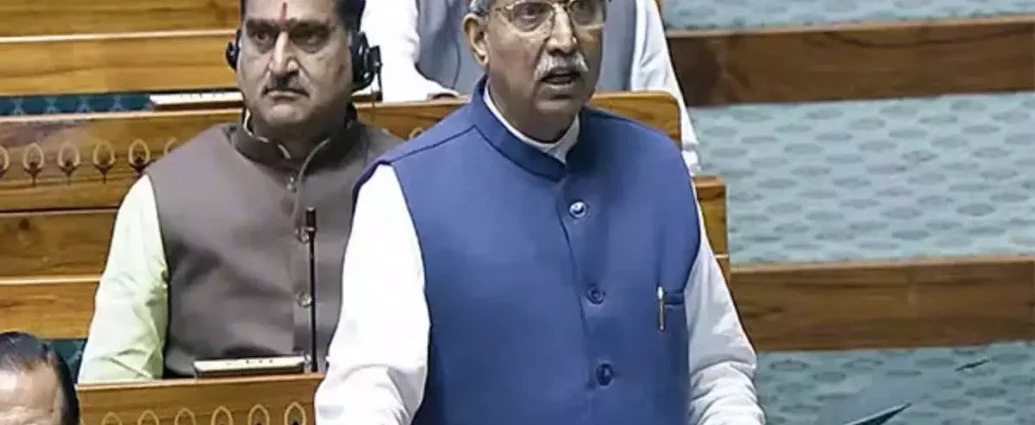The ‘One Nation, One Election’ Bill, introduced by Union Law Minister Arjun Ram Meghwal in the Lok Sabha, has ignited a fierce political debate, with the INDIA bloc, led by the Congress, opposing the move and calling it an “assault on the Constitution”.
Key Developments:
On Tuesday, Union Law Minister Arjun Ram Meghwal tabled the ‘One Nation, One Election’ Bill in the Lok Sabha, marking a significant step toward synchronizing elections across the country for the Lok Sabha and state assemblies.
Manish Tewari, Congress MP, immediately voiced strong opposition, asserting:
“The ‘One Nation, One Election’ Bill is an assault on the basic structure doctrine of the Constitution.”
Tewari’s criticism highlights the INDIA bloc’s concerns over the constitutional validity and practical challenges of implementing simultaneous elections nationwide.
Why ‘One Nation, One Election’ Matters:
The proposed legislation aims to streamline the electoral process by holding simultaneous elections for the Lok Sabha and all state assemblies. Proponents argue that this reform could:
- Reduce the frequent disruption caused by repeated elections.
- Lower election costs significantly.
- Enhance governance efficiency by minimizing the influence of the Model Code of Conduct.
However, the opposition believes that the proposal undermines India’s federal structure and democratic principles, as the Constitution allows for independent elections in states.
Strong Opposition from INDIA Bloc:
The INDIA bloc, a coalition of major opposition parties, has united in their stance against the Bill. Critics have pointed to logistical challenges, the need for constitutional amendments, and concerns about centralization of power.
As the political debate intensifies, the ‘One Nation, One Election’ proposal has become a key battleground between the ruling party and the opposition.
Key Takeaways:
- What Happened: The ‘One Nation, One Election’ Bill was introduced in the Lok Sabha by Union Law Minister Arjun Ram Meghwal.
- Who Opposed: Congress MP Manish Tewari called it an “assault on the Constitution,” sparking opposition from the INDIA bloc.
- The Debate: While proponents argue it will reduce costs and improve governance, the opposition raises concerns about the Constitution’s federal structure.
The Bill’s introduction marks the beginning of a contentious debate that could reshape the future of India’s electoral process.
